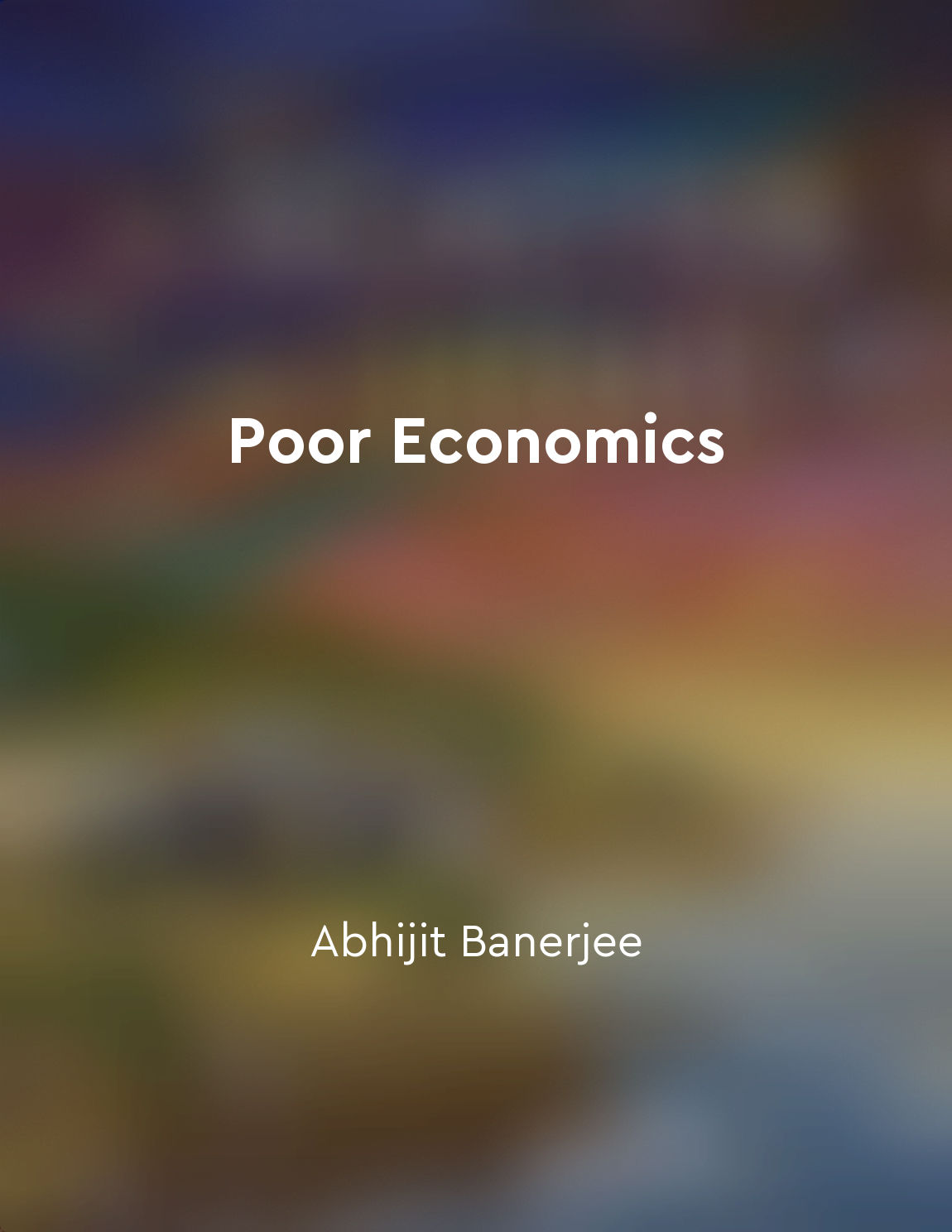Economic prosperity should benefit all, not just a privileged few from "summary" of Friends Not Masters by Mohammad Ayub Khan
The fundamental principle of economic prosperity is that it should be for the benefit of all members of society, not just a select few. This concept is rooted in the belief that every individual has the right to share in the wealth and opportunities generated by a thriving economy. When economic prosperity is concentrated in the hands of a privileged few, it leads to inequality, social unrest, and ultimately, the decline of the entire society. In a just and equitable society, economic prosperity should be distributed fairly among all citizens. This means that everyone should have access to opportunities for education, employment, and entrepreneurship, regardless of their backg...Similar Posts
Discrimination can limit individuals' earning potential
Discrimination has a direct impact on an individual's earning potential. When individuals are discriminated against based on fa...

Health care is a major concern for the poor
Health care looms large in the minds of the poor. When a family lives on the edge, any illness can push them over. The fear of ...
Political power should be decentralized
Political power is a force that must be carefully managed within any society. When power is centralized in the hands of a few i...
Social norms regulate behavior within societies
Social norms are unwritten rules that govern behavior within societies. These norms dictate what is considered acceptable or un...
Policies can alleviate inequality
Policies play a crucial role in shaping the distribution of income and wealth in society. By implementing certain measures, gov...
Citizens should be virtuous and strive for excellence
In order to create a flourishing and harmonious society, it is essential that citizens possess virtues and strive for excellenc...
Behavioral economics explores how psychological factors influence economic decisions
Behavioral economics delves into the intriguing ways in which our brains can sometimes lead us astray when making economic deci...
